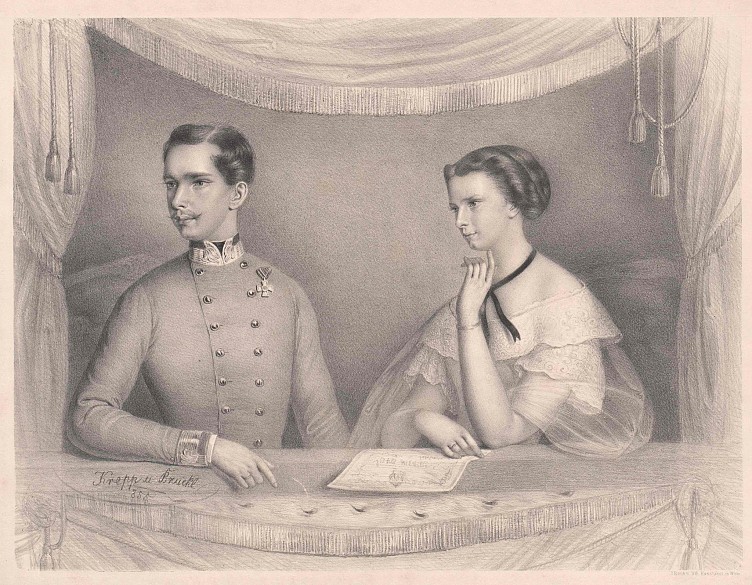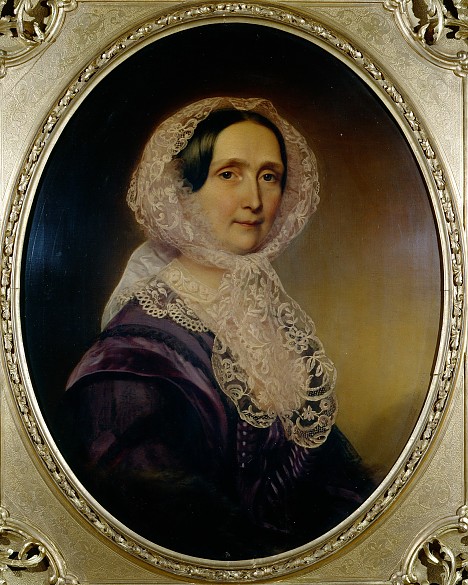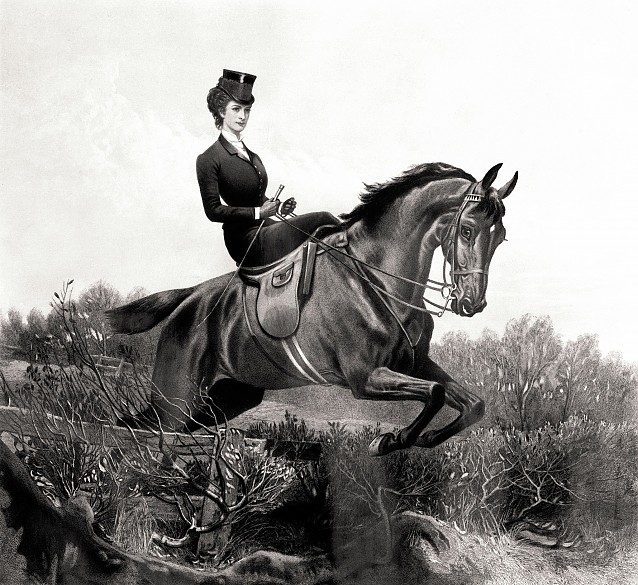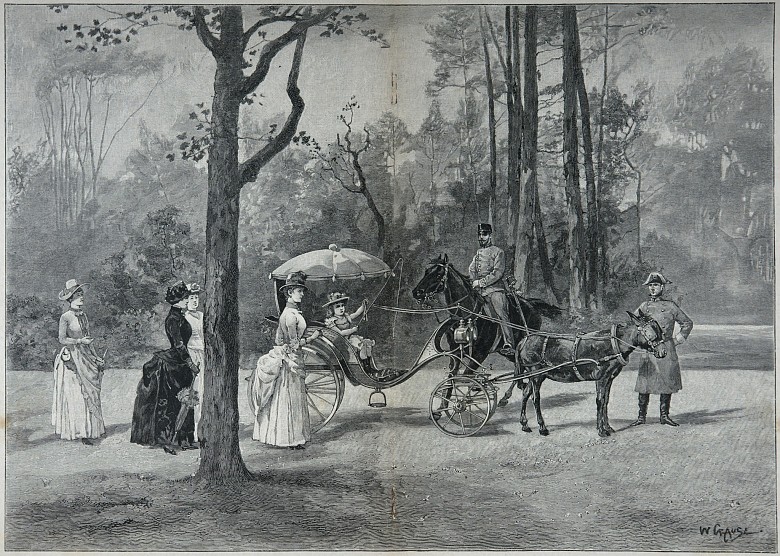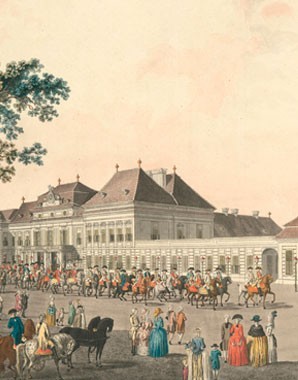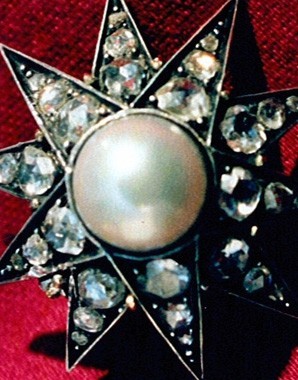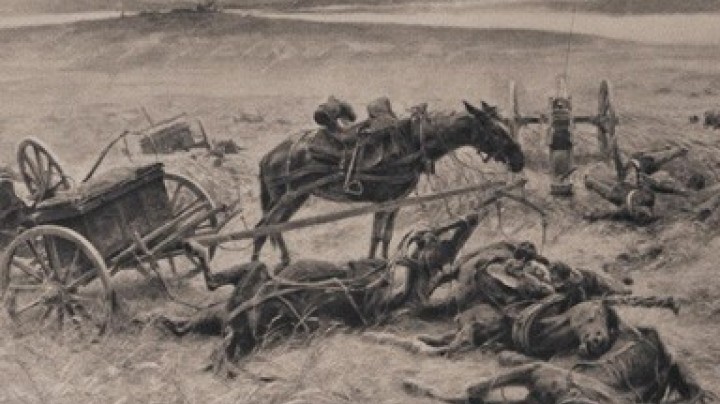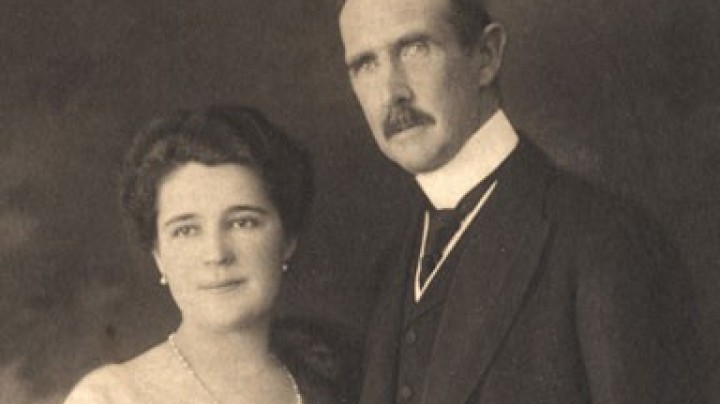The tender shoots of love: the imperial honeymoon at Laxenburg
Pure romance - a newly-wed picture-perfect couple in a vernal setting. On the occasion of his wedding to Elisabeth, Franz Joseph decided to spend his honeymoon at Schloss Laxenburg so as to continue the tradition of the family’s annual spring holiday at their rural residence outside Vienna.
Yet nothing became of their intended cosy togetherness, for the young couple’s wedded bliss was overshadowed by a massive diplomatic crisis related to the Crimean War. Emperor Franz Joseph’s presence in Vienna was indispensable. However, his exemplary zeal for his work did not enable him to avoid a foreign-policy disaster for which he, as absolutist sole ruler, was answerable. Every morning, he had to travel from Laxenburg to the Hofburg in Vienna.
Elisabeth, still unsure of herself in her new role as empress, was left behind alone at Laxenburg, an unfamiliar environment. The court household which she was allocated, and her personal attendants, consisted of complete strangers, and it was in close proximity to these people that she now spent her daily life. Elisabeth’s mother-in-law, Archduchess Sophie, initially attempted in good faith to prepare this teenager, who was utterly helpless on the treacherously polished dance-floor that was courtly life, for her new role as empress. However, apparently Sophie’s approach was very insensitive, and this was to weigh heavily on the two women’s future relationship. The fact that the empress was extremely unhappy in the weeks following her marriage and longed for Possenhofen and her family, finds its expression in her poetry:
Es kehrt der junge Frühling wieder
Und schmückt den Baum mit frischem Grün
Und lehrt den Vögeln neue Lieder
Und macht die Blumen schöner blüh'n.
Doch was ist mir die Frühlingswonne
Hier in dem fernen, fremden Land?
Ich sehn' mich nach der Heimat Sonne
Ich sehn mich nach der Isar Strand.
Fresh spring returns / And trims the trees with new green / And teaches new songs to birds / And makes the flowers bloom more beautifully. / But what is springtime bliss to me / Here I the faraway, strange land? / I long for the sun of home, / I long for the banks of the Isar.
In order to escape boredom, Elisabeth enjoyed exploring her surroundings alone on horseback, much to the chagrin of her mother-in-law. It was not just that spontaneous horseback rides without an appropriate chaperone were considered unseemly conduct on the part of an empress, but such adventures also represented a considerable security risk to Elisabeth.
It was also in Laxenburg that Elisabeth gave birth to her daughter Gisela in 1856 and, two years later, Rudolf. Rudolf would later himself spend his honeymoon in Laxenburg with his wife Stephanie of Belgium, but this marriage too failed due to the couple’s incompatibility.
